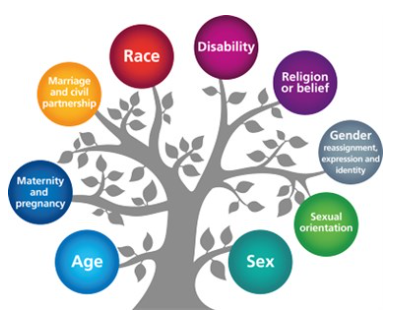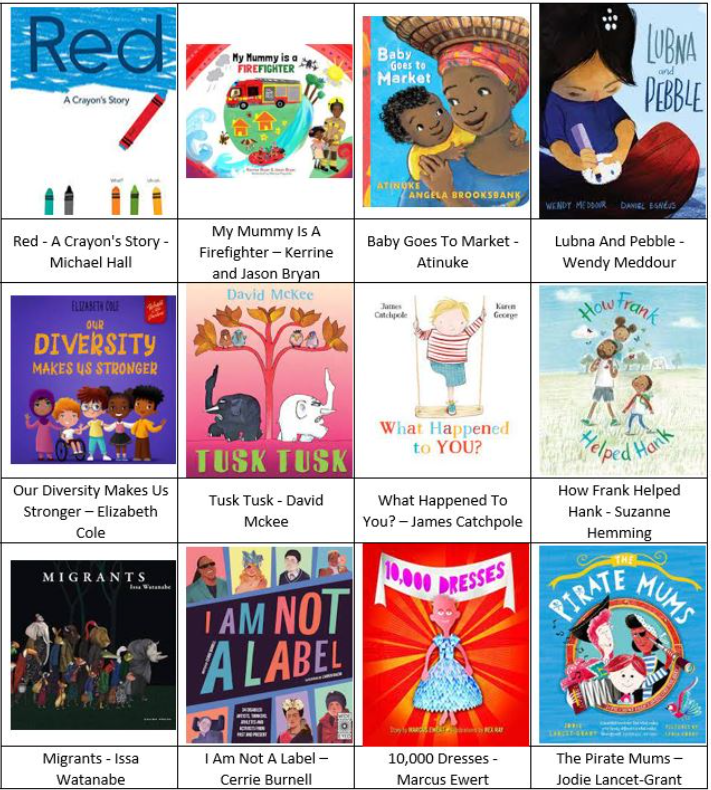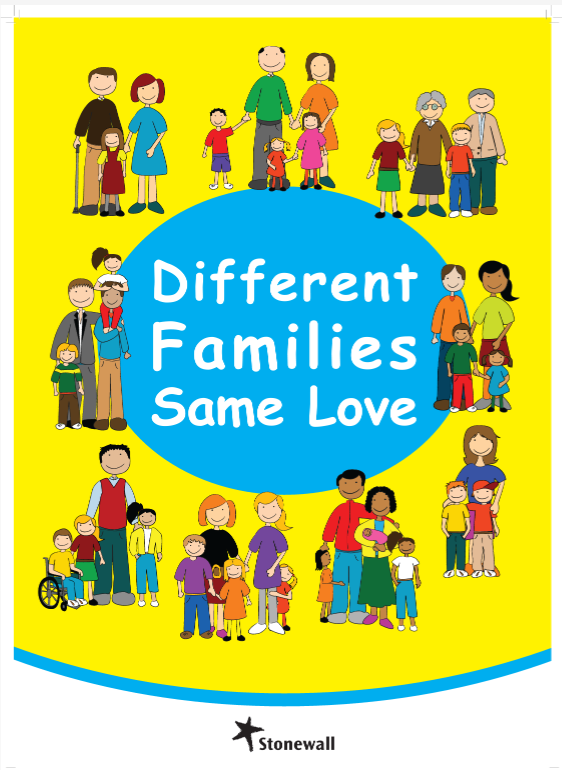Protected Characteristics
PROMOTING THE NINE PROTECTED CHARACTERISITICS
At Woodlands, we strongly believe that it is important for our children to gain a meaningful understanding of the world they are growing up in, and to learn how to live alongside-and to show care and respect for- a diverse range of people.
We value the uniqueness of us all as individuals, and strive to enable our children to feel comfortable with their own identities and at ease and confident with others. We heavily invest in the social and emotional aspects of learning.
Therefore we are committed to developing an appreciation of the benefits of diversity, celebrating what we have in common, and promoting respect for the different protected characteristics as defined in law.

The Equality Act became law in 2010. It covers everyone in Britain and protects people from discrimination, harassment and victimisation.
Everyone in Britain is protected. This is because the Equality Act protects people against discrimination because of the protected characteristics that we all have.
Under the Equality Act, there are nine Protected Characteristics:
- Age
- Disability
- Gender reassignment
- Race
- Religion or belief
- Marriage or civil partnership
- Sex
- Sexual orientation
- Pregnancy and maternity
At Woodlands, we have a well-considered, age and stage appropriate approach to the coverage of the protected characteristics, in order to:
-
eliminate discrimination, harassment, and victimisation
-
advance equality of opportunity for all
-
foster mutually respectful and positive relationships throughout our welcoming and inclusive community.
From Nursery and Reception onwards, engaging and relevant picture books are chosen using our “Head, Heart and Hands” approach. The variety of genres increase in complexity and depth as the children move and progress through the school, as do the range of diverse protagonists, authors and illustrators. These texts and portrayed characters encourage positive and guided discussion of the protected characteristics in a cohesive and joined-up way.
Broad representation in the books we enjoy is vital. Firstly, it teaches children with one or more protected characteristic that they are not alone, and that their characteristics are to be celebrated. Secondly, it teaches children outside of these groups to appreciate the differences and commonalities they share with the heroes and heroines in their favourite stories.

We have created our own bespoke “Points of View” sessions (in EYFS and KS1 so far) which essentially encourage the children to think for themselves and to think of others.
They provide a safe and supportive learning environment where children can develop the confidence to ask and answer questions, challenge the information they are offered, draw on their own experience, express their views and opinions and put what they have learned into practice in their own lives.
Children are given the tools and structures to develop fluent, rich and deep thinking and talking.
Exploring different points of view develops empathy, mutual respect and an appreciation and celebration of diversity.
A typical example session (Y2 T3 W5)
The children were asked philosophical warm-up questions such as “What is good, bad or interesting about being different?”, then played a “Fruit Salad/ Swap places” Diversity game before sharing and responding to “We’re All Wonders” (R.J.Palacio). They then worked in pairs to complete a Diamond 4 prioritising game where they had to discuss, negotiate and choose which statement they felt was the most important etc. out of the following options:
The Earth is big enough for all kinds of people.
People can change the way they see.
Look with kindness.
We’re all Wonders.
To finish and as a reflection opportunity, we made a Human Continuum based on the statement:
“We can learn a lot from people who are different from us.”
Our vocabulary exploration was based around ordinary and extraordinary, and other synonyms and antonyms.
This story also fulfills our intentions to promote open-mindedness and develop compassion.
Throughout Woodlands, we are all using the “Agree Build Challenge” (ABC) framework set within a whole-school Oracy project to encourage the children to know how to disagree with each other in a respectful way, and to appreciate that having differing opinions and experiences enriches our lives and makes our time together better and more interesting.

We also have a key focus on broadening and enriching vocabulary, which we teach using Alex Quigley’s Three Pillars:
- Explicit Vocabulary Instruction
- Incidental Vocabulary Learning
- Cultivating “Word Consciousness”
because we need to have a communal conceptual understanding of relevant and coherent vocabulary for quality, well-informed discussions e.g. uniformity and diversity, uniqueness, similarities and differences, stereotype, prejudice, tolerance, equality, fairness…
The 9 Protected Characteristics are actively promoted at Woodlands through:
- Our warm and welcoming whole-school ethos and collaborative classroom communities
- Our praise-first approach to identifying and celebrating our children’s positive learning behaviours, talents and attributes
- Our core School Values: Kindness; Respect; Community; Resilience; Aspiration
- Promoting and living out British Values (democracy, the rule of law, individual liberty, mutual respect and tolerance of those of different faiths and beliefs) throughout Woodlands
- Our “Positive Relationships and Behaviour” and “Anti-bullying” policies and practice
- Adult role modelling in the school community, including our inclusive employment choices
- Active engagement and communication with parents/carers and listening and responding to pupil voice
- Assemblies which offer opportunities to reflect on Equality and Diversity issues and themes e.g. the “Feeling the elephant” story about our different experiences and how we see things differently, and Tolerance-themed assemblies e.g. reflecting on how understanding and tolerance makes the world a better place.
- Visual aids and posters displayed prominently around the school:

- Discussion within curriculum subjects, taking a cross-curricular approach
- Personal, Social, Health and Economic education (PSHEE) and Relationships, Sex and Health Education (RSHE) sessions (taught predominantly through the SCARF scheme) which actively promote respect and inclusion
- Religious Education (RE) lessons which enable us to understand, compare and celebrate major world religions
- Our very own “11 by 11 Enrichment Passport” which includes cultural visits and activities, Sports events and Art projects
- Educational visits, guest speakers and developing links with local, national and international communities
- Extra-curricular activities, after-school clubs, charity work and work within the local community
- Our CPOMS behaviour logging system – with categories including bullying, racist, and homophobic incidents – which track any incidents for a swift and effective response and resolution and as opportunities to learn and grow.
Research shows that a lack of representation in the media can lead to lower wellbeing for children with identities that aren’t represented, or are represented negatively.
Exposure to negative representations can undermine children’s sense of self – while high-quality representation promotes more positive attitudes, interactions, and better well-being.
It is therefore important to get our representation of the protected characteristics right and this is a key focus for us at Woodlands as we continue to move forwards.
All are welcome here.

